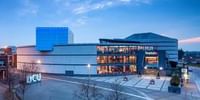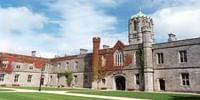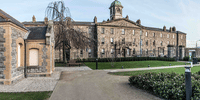An understanding of normal physiology forms the basis for the practice of human and veterinary medicine (and much of dentistry). Physiology is distinctive among the biological sciences in that it takes an integrated, holistic view of the whole organism, bringing together knowledge from a range of disciplines to create an overall understanding of the living organism.Other life sciences have adopted a reductionist approach, concentrating on a single component of a complex system rather than the system as a whole. Physiology brings these fragments together to understand how a living organism works.If you enjoy working with the details as well as the overall picture, then maybe Physiology is the degree for you.Course DetailsThe course starts with the basic Year 1 material common to Biology, Chemistry, Physics and Mathematics.In Year 2 it builds on this by examining the fundamental molecular processes that occur in all cells and the function of some specialised cell types, such as nerve and muscle cells. Based on this foundation in cellular physiology the course then deals with interactions between large populations of cells and with the integrated function of organ systems as they occur in whole animals, principally humans.Year 3 provides a deep insight into the functions of the body systems (eg nervous, cardiovascular, respiratory systems) and includes core modules in Pharmacology (how drugs can be used both to alter biological function and to reveal new aspects of biology), immunology (study of the body?s defence mechanisms), and a literature review style research project.In Year 4, students are introduced to issues in diverse areas of Physiology with a focus on the research literature and exploration of methods, data analysis and theories of molecular, cell and integrative physiology. The application of basic science to human health and disease is explored. Additionally, students undertake a research project under the supervision of academic staff.
₹25.9 L/Yr
€24,500 /Yr
Important Dates
| Event | End Date |
| Application Deadline For September Intake | May 31, 2023 |
Fees & Funding
Tution & Application Fees
| Year | Year 1 | Year 2 | Year 3 | Year 4 | Year 1 | Year 2 | Year 3 | Year 4 |
| Tuition Fees | ₹2432710 | ₹2432710 | ₹2432710 | ₹2432710 | ₹2432710 | ₹2432710 | ₹2432710 | ₹2432710 |
| Other Fees | ₹158655 | ₹158655 | ₹158655 | ₹158655 | ₹158655 | ₹158655 | ₹158655 | ₹158655 |
| Total Fees | ₹2591365 | ₹2591365 | ₹2591365 | ₹2591365 | ₹2591365 | ₹2591365 | ₹2591365 | ₹2591365 |
Ask your question
Similar Colleges You Might Be Interested In
- Similar Colleges
No Ratings Found!!
Follow
No Ratings Found!!
Follow
No Ratings Found!!
Follow
No Ratings Found!!
Follow
No Ratings Found!!
Follow











